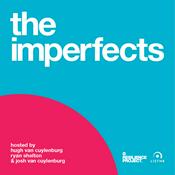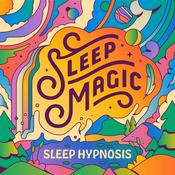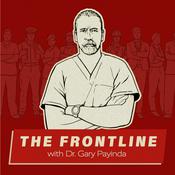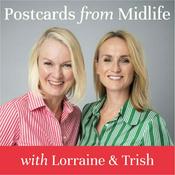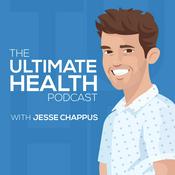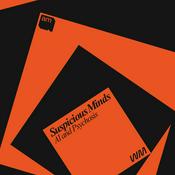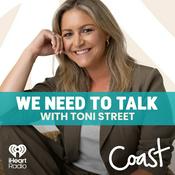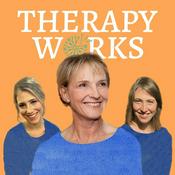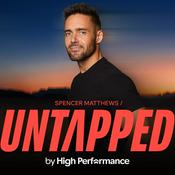275 episodes
- This episode is an absolute cracker! And we can say that as we've got outsider help...
We've all been involved with patients where securing the airway with a prehospital anaesthetic feels intuitively right; the patient with a severe head injury after a fall from height, the unrestrained driver in a high-speed collision with devastating chest injuries, or the patient with significant maxillofacial trauma following assault. In these situations, advanced airway management appears clearly beneficial.
What remains a bit ambiguous is the effect of that intervention. Does it play out into a mortality benefit and if so how should we redesign systems to meet a 24 hour need for this (with many prehospital critical care services not being available fully around the clock), bearing in mind competing financial priorities for optimum health care. Maybe it's okay that for some patients the anaesthetic is delayed to the Emergency Department?
Worldwide, trauma accounts for an estimated 4.4 million deaths annually and carries a substantial economic burden. Despite decades of improvements in trauma systems, medications such as tranexamic acid, and the development of prehospital critical care teams, some key aspects of trauma care remain really difficult to study well.
Prehospital emergency anaesthesia is a prime example. It is time-critical, ethically complex, highly operator dependent and almost impossible to study using conventional randomised trial designs. As a result, clinicians have largely been forced to rely on observational studies, despite the well-recognised problems of bias and confounding that accompany them.
In this episode, we explore the existing evidence base and then focus on a landmark new study published in The Lancet Respiratory Medicine. This paper applies machine-learning techniques to a large UK trauma dataset to address the question; does prehospital intubation improve survival in patients who are predicted to need early airway intervention?
We walk through how the authors developed a predictive model to identify high-risk patients, how doubly robust estimation was used to move beyond simple association, and how survival and health-economic outcomes were assessed. The results suggest a clinically meaningful reduction in 30-day mortality for selected high-risk trauma patients who receive prehospital intubation. And we're then joined by two of the study's authors, Amy Nelson and Julian Thompson.
Together, we explore what these findings may mean for the future of prehospital emergency anaesthesia, how we should think about evidence in complex emergency care environments, and whether this type of analytical approach could reshape trauma research more broadly.
Once again we'd love to hear any thoughts or feedback either on the website or via X @TheResusRoom!
Simon & Rob - Welcome back to February's Papers of the Month!
We start this month looking a the right place to perform a prehospital anaesthetic. Traditionally we've been taught it should be somewhere with 360-degree access to allow the greatest safety, which means intubating in an ambulance and other locations are a no-go. But does it actually reduce complications, and what about other locations and situations? This paper explores whether location is associated with outcomes, or whether it might actually be a reasonable and sometimes advantageous to forgo that 360 access.
We've talked a lot about pad position in cardiac arrest recently, mainly in the context of DSD, but what about initial pad position? Our second paper may be even more important than DSD! This one takes a look at initial pad position, antero–lateral versus antero–posterior placement and asks whether initial pad position influences return of spontaneous circulation.
Finally, we take on one of the most debated topics in emergency and critical care airway management, with choice of induction agent. We look at a brilliant RCT which compares Etomidate to Ketamine and their haemodynamic stability. This one challenges some widely held assumptions, in an attempt to provide some much-needed clarity in what we should be using.
Once again we'd love to hear any thoughts or feedback either on the website or via X @TheResusRoom!
Simon & Rob - Paediatric seizures are common, time-critical events and they're something most of us will deal with, whether that's pre-hospital, in the emergency department, or on the ward. They make up around 1–2% of ED attendances, and about 1 in 20 children will have a seizure at some point. Most seizures self-terminate, but the longer they go on the harder they are to stop, and the higher the risk of harm. In paediatric seizures, time really matters.
In this episode we take a step-by-step look at how to assess and manage a child who's seizing. We start with the fundamentals; how seizures are defined and classified, what status epilepticus actually means in practice, and why recognising it early makes such a difference.
We then dig into the physiology behind seizures, exploring why early benzodiazepines work well and why delayed treatment often doesn't. Understanding what's happening at a receptor level helps make sense of when to escalate treatment and why different drugs work at different stages of a prolonged seizure.
Pharmacology is a big part of this episode. We talk through first- and second-line anti-seizure medications, routes of administration, and how effective they really are. We cover the EcLiPSE and ConSEPT trials comparing levetiracetam and phenytoin, and look at newer evidence from the Ket-Mid study and what that might mean for managing refractory status and thinking about RSI.
We also work through the approach to cases, pre-hospital management and in-hospital care aligned with UK and European recommendations. There's a clear focus on febrile seizures too, separating simple from complex presentations and helping you decide who needs investigating, admitting, or reassuring and discharging.
As ever, the aim is to turn guidelines and evidence into something usable on the shop floor. Paediatric seizures are stressful, but with a structured approach, early treatment, and good airway management, they're absolutely manageable and we can make a real difference on outcomes.
Once again we'd love to hear any thoughts or feedback either on the website or via X @TheResusRoom!
Simon, Rob & James - Welcome to January's Papers of the Month, which marks 10 years of the podcast!
First up, we look at a large multicentre cohort study from the East of England examining the association between prehospital post-intubation hypotension and mortality in severe traumatic brain injury. Preventing secondary brain injury sits at the centre of what we're try to achieve in early TBI care, but this paper quantifies the impact of post-RSI hypotension in a dramatic way and the associated increase in 30-day mortality.
Our second paper moves into the world of stable supraventricular tachycardia, asking whether an elevated troponin level in this cohort predicts short-term cardiovascular events. Troponin testing in SVT is common but debated: is it useful, or is it a diagnostic red herring?
Finally, we look at BICARICU-2, a major multicentre RCT examining sodium bicarbonate for severe metabolic acidemia in patients with moderate–severe AKI. We explore what this means for bicarbonate use for this group of patient, both in terms of mortality rates and the need for renal replacement therapy.
Once again we'd love to hear any thoughts or feedback either on the website or via X @TheResusRoom!
Simon & Rob - Welcome to this special edition of Roadside to Resus where we're diving into some of the progressive and practice-defining developments in pre-hospital emergency care. This episode brings together a superb group of clinicians, educators and leaders who are shaping the future of PHEM across the UK, and we caught up with them at the recent Faculty of Pre-hospital Care Conference entitled 'The Wider World of Pre-hospital Care'!
We start with Pam Hardy, the Chair of the FPHC, who offers an introduction to the College and its ongoing work to elevate standards across pre-hospital care.
Next, Camella Main guides us through the brand-new Pre-hospital Maternity Decision Tool designed to support clinicians facing complex decision making in this complex group of patients. Camella breaks down how the tool came to fruition and how teams can use it to enhance safety and decision-making on scene.
We then hear from Ben Sheppey, who explores the growing move to formalise and professionalise voluntary pre-hospital care. Ben reflects on the challenges, opportunities and cultural shifts required to align voluntary responders with national standards.
Harriet Tucker then walks us through the new FPHC consensus statement on managing penetrating neck injuries. She distils the key principles, the recommendations, and how the guidance aims to bring clarity to one of the most complex and time-critical presentations we face.
From there, Cosmo Scurr unpacks the latest AAGBI PHEA Guideline, highlighting the key movements in delivering anaesthesia in the pre-hospital environment.
We also hear from Felix Wood, who provides a sharp, practical look at crush injury and crush syndrome.
Finally, Zane Perkins explores the rapidly advancing world of AI in PHEM. From practical application to decision making support. Zane describes how emerging technologies have the potential to change prehospital care in ways we may have never considered before!
A huge thanks to the expert speakers for their time recording highlights from the superb conference.
Once again we'd love to hear any thoughts or feedback either on the website or via X @TheResusRoom!
Simon, Rob & James
More Health & Wellness podcasts
Trending Health & Wellness podcasts
About The Resus Room
Emergency Medicine podcasts based on evidence based medicine focussed on practice in and around the resus room.
Podcast websiteListen to The Resus Room, Maintenance Phase and many other podcasts from around the world with the radio.net app

Get the free radio.net app
- Stations and podcasts to bookmark
- Stream via Wi-Fi or Bluetooth
- Supports Carplay & Android Auto
- Many other app features
Get the free radio.net app
- Stations and podcasts to bookmark
- Stream via Wi-Fi or Bluetooth
- Supports Carplay & Android Auto
- Many other app features


The Resus Room
Scan code,
download the app,
start listening.
download the app,
start listening.






